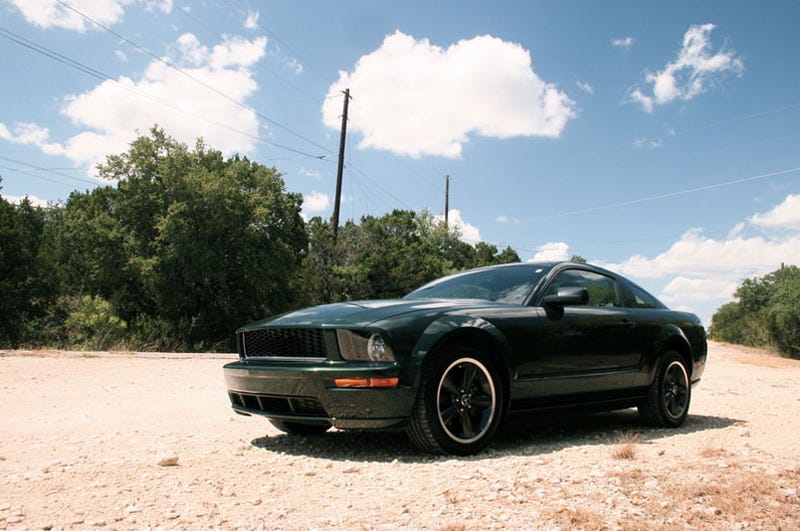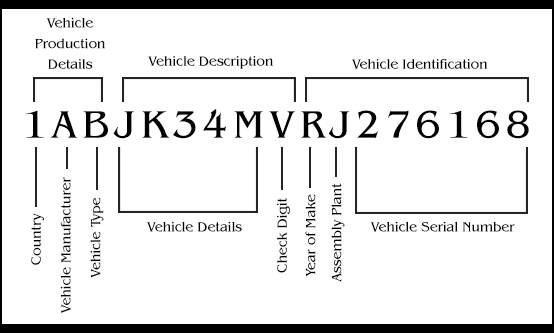Discussion in 'The Hokey Ass Message Board' started by Fender1325, Oct 4, 2015. Joined: Aug 31, 2014. Posts: 730 Profile Page. All the websites I search cant use an old VIN prior to 1981. The car Im looking at is a 56 cadillac sedan deville VIN#. How to Trace the History of Your Classic Car. Or tracing the owners of the one you are restoring, the first thing you need to do is decode the VIN number. Antique Car Vehicle Identification Numbers. To give you an example of an old automobile serial number, the 1930 Buick Sedan might have a number such as 2414805.On that particular model the serial number would be found on the car's right or left frame side rail about 13 inches back from the front axle.
Instant Vehicle History Report

Avoid buying a car with costly hidden problems.
Since 1954, all vehicles made in the United States are assigned a vehicle identification number (VIN). In the first few decades of VIN assignment, the numbers themselves varied depending on the vehicle's manufacturer—there was no standard regarding length, character type, etc.
Beginning with the production of vehicles model year 1981 and newer, the National Highway Traffic Safety Administration (NHTSA) standardized the assignment of VINs to be a combination of 17 characters (numbers and letters).
Importance of VINs for Older Vehicles
Whether it's for pure nostalgia or business purposes, there are many reasons you may need tolocate the VIN of an older vehicle. Some of the more common include:
- Searching for an old car or truck you used to own.
- Checking the authenticity of an older vehicle before you decide to purchase it.
- Getting the exact history for an old car you already own.
- Obtaining production numbers for rare or special edition vehicles.
- Determining an accurate value for a vehicle before you decide to sell.
Like any used car, it's important to know as much about a vehicle's history as possible. Because older cars and trucks typically have a larger monetary value, the risk is often greater—especially if you don't have any way of knowing basic information of a car or truck's history.
Find a VIN for an Older Vehicle
Your first step to locating an older vehicle or obtaining more information about a particular vehicle's history is to obtain an accurate VIN or serial number. If the VIN plates and stickers are missing, or if you don't know the VIN of an old car or truck you used to own, there are several ways you can locate a particular vehicle's VIN, such as:
- Old registration and insurance cards.
- Any loan papers you may have signed.
- The bank from which the loan was obtained may also have this information on file.
- Records from insurance companies.
- Either your insurance company or a previous owner's.
- Repair records from a car dealership.
- Repair receipts are also a possibility.
- Police reportsor insurance claims.
- VIN information might be available if the vehicle was ever involved in an accident.
Using Photos to Find VIN Information
If you aren't able to locate a vehicle's VIN through these methods, you might want to try searching through old photographs. While some of this information may not directly lead to a VIN number, it can provide valuable information on the history of a vehicle.

It's a good idea to search old photographs for:
- License plate numbers.
- If you own the vehicle, the state DMV where the car or truck is registered may be able to help you locate the VIN in some cases.
- Information relating to original body, engine, and transmission type.
- The original color of vehicle.
- Information relating to the interior design of the vehicle.
Begin a VIN Search for Older Vehicles
Locating an old car or truck you used to own can be a challenge with or without an accurate VIN.
If you have a VIN or serial number, start your search by:
- Using a VIN check site that specializes in older vehicle databases.
- Typing your VIN into a search engine such as Google, Yahoo, or Bing.

If you don't have a VIN or serial number, try posting a search history on the vehicle. A search history is an ad that typically features a short description or story related to the vehicle you're searching for. Post a search history you create to:
- Enthusiast message boards.
- National car club websites.
- Use any car club that features your model of vehicle.
- Facebook or other social media outlets.
- Want ads in car club newsletters.
- A blog you create.
In addition to posting a search history, locating previous owners of the vehicle can provide valuable information that can help you find your car. If you have the address or name of the person your car was sold to, get in contact by searching:
- Social media.
- Public record databases.
- Gathering information through search engines.
This can often lead to more detailed information on license plates, VIN numbers, and additional owners of the vehicle that may help you to continue your search.
Related Products and Services
DMV.ORG Insurance Finder
Classic Car Serial Number Check Number
Join 1,972,984 Americans who searched DMV.ORG for car insurance rates:
Check Serial Number
One Distraction Can Steal Your Reaction
Do your part to help end distracted driving.